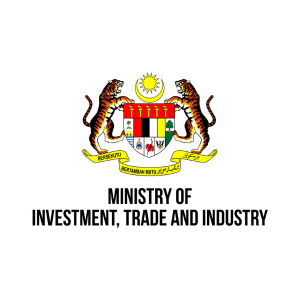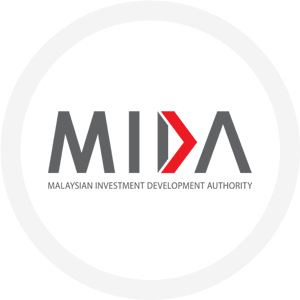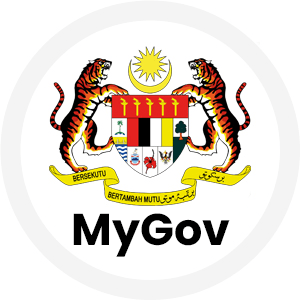Using Behavioural Insights For Better Outcome
13 May 2025
STREAMLINING policy and regulatory frameworks through behavioural insights can unlock opportunities for small and large enterprises, according to Malaysia Productivity Corporation (MPC) chairman Datuk Kamaruzzaman Johari.
He said simplifying regulations not only supports business expansion but also plays a key role in strengthening supply chains and driving innovation.
Malaysia's productivity per employee has risen from about RM89,000 in 2020 to about RM99,000 last year.
Despite the economic challenges of 2020, productivity rebounded and stabilised at a growth rate of 2.4 per cent by last year.
Kamaruzzaman attributed this to the country's adaptability and forward-looking strategies. However, he cautioned against relying on traditional approaches, stressing the need for fresh strategies that reflect real human behaviour.
Behavioural insights, he explained, offer practical tools to better understand decision-making processes and design more effective, human-centred policies.
"Malaysia has begun applying behavioural insights in various areas with promising results. For instance, the Sungai Petani Municipal Council saw a 13 per cent increase in compound payment compliance through well-crafted messages and reminders.
"Another example is the Domestic Trade and Cost of Living Ministry's Pasar Patuh Programme, which uses a digital platform and behavioural nudges to encourage traders to follow price controls.
"Instead of relying on enforcement, the initiative helps traders make better decisions through simple, thoughtful design, showcasing how combining technology and behavioural science can lead to fairer and more effective policy outcomes.
"These successes show that if we consider how real people act, we can create solutions that are embraced, not resisted," he said in his opening speech at the 2025 Conference on Behavioural Insights in Policymaking for Productivity organised by MPC.
According to Kamaruzzaman, Malaysia is still at the early stage of applying behavioural insights in policy-making, guided by the national behavioural insights framework called PRIME.
He said to support this effort, a community of 470 leaders, practitioners and talents has been built, along with 27 case studies to promote and apply behavioural insights across ministries, agencies and local authorities.
"Looking ahead, our goal is to expand and make behavioural insights a mainstream policy in the federal, state and local governments under the 13th Malaysia Plan (2026 to 2030)."
Kamaruzzaman added that timely reminders and clearly communicated benefits can improve voluntary compliance among businesses while also reducing enforcement burdens on government agencies.
He emphasised that such initiatives contribute to both business efficiency and public sector effectiveness.
"The MPC stands ready to support these efforts. As the lead agency for productivity, we can coordinate with other ministries and external partners like the Asian Productivity Organisation (APO).
"We can develop best practices and share success stories across sectors by pooling our expertise.
"We also welcome the chance to learn from others who have explored behavioural insights in public policy. By applying behavioural insights in policy development, we can make compliance easier and foster a conducive environment for businesses," he added.
GLOBAL VIEWS
One of the speakers at the conference, Think.Test.Do director Faisal Naru, described behavioural insights as the scientific application of disciplines such as cognitive science, decision-making and psychology to public policy.
He said the approach relies on experimentation and a variety of methods to better understand human behaviour, specifically why people do what they do.
"A core issue is that many government policies are built on the assumption that people behave like rational robots.
"They assume people will consume information, weigh costs and benefits and make optimal decisions. But real humans are busy, distracted and do not always behave rationally, and this often leads to policy failure.
"Behavioural insights aim to reduce that failure by designing policy for real people, not idealised rational actors," he told Business Times.
Saudi Arabia's Human Resources and Social Development Deputy Minister for Skills and Training Dr Ahmed Al-Zahrani said behavioural insights are important because they challenge traditional assumptions about human behaviour.
He said traditionally, policies were developed based on the assumption that people would automatically understand and comply with them.
He said that in reality, individuals do not always respond to policy as expected, and it is essential to consider how different groups, whether citizens or employers or others, receive and react to policy measures.
"Behavioural insights bring an experimental mindset to policy-making. The private sector has done this for years.
"Over the last 15 years, there has been a transformation in how behavioural insights are applied in public policy, primarily through evidence and experimentation."
Alex Galassi, the manager of the Behavioural Insights Unit in the New South Wales Government of Australia, said Malaysia is doing great things with behavioural insights.
She said as we expand behavioural insights and apply them to more complex issues, the approach becomes highly context-specific.
In this regard, Galassi emphasised that while behavioural insights involve both processes and principles, the real value lies in the research processes and the approaches used in more challenging contexts.
Claudia da Costa Martinelli Wehbe, the director of government innovation at Brazil's Management and Public Service Innovation Ministry, agreed with Galassi and said an evidence-based approach is crucial for understanding how people truly interact with government services.
She said such insights are invaluable, often revealing aspects that might otherwise be overlooked.
"Beyond simple nudges, understanding how people make decisions, assess and interact with services provides meaningful data that can drive improvement."
LEADING THE WAY
As such, the MPC leads the adoption of behavioural insights to improve policy formulation and implementation, integrating behavioural insights with good regulatory practices and other tools to ensure evidence-based strategies that align with international best practices.
The agency aims to create a more efficient, transparent and effective governance system through this initiative.
This year's conference focuses on the theme "Behavioural Insights in Policy Making for Productivity", highlighting the significance of behavioural insights in driving effective policies and optimising resource allocation for sustainable outcomes.
The conference was held in partnership with the APO, reinforcing the collaborative efforts between international organisations to integrate behavioural insights into public policies.
The event provided a platform for policymakers, experts and practitioners to share their knowledge, strategies and experiences on applying behavioural insights to improve governance, productivity and regulatory frameworks.
Source: New Straits Times





















